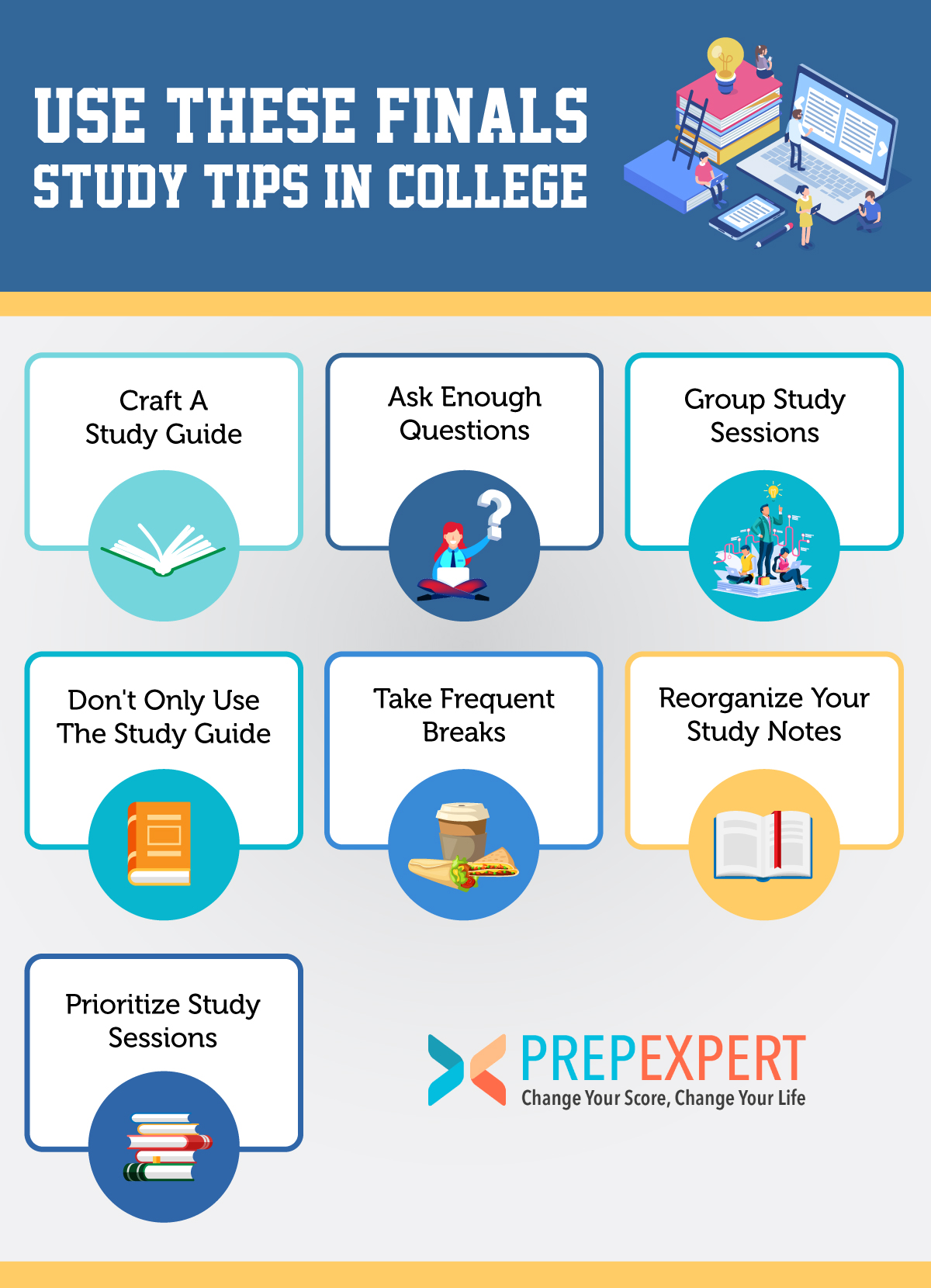Use These Finals Study Tips In College
College finals can seem daunting when thinking about them in high school. The truth is you will be tested harder than in high school, both in terms of knowledge depth and expectations. Especially when some classes are based almost entirely on a midterm and final exam alone.
Keep these finals study tips in mind when tackling your first round of college-level exams; they’ll keep your mind calm and help overcome that initial hurdle with ease.
Check out how we can help you prepare for standardized tests with our year-round SAT prep and ACT prep courses today before they have to take either test.
Craft A Study Guide
Make your own study guide to better organize the major concepts.
Go back through each major lesson and outline the important information. Is there anything that you didn’t understand as well? If so, include it in your guide after reading it again. Make sure your weaknesses are addressed and reinforce your overall understanding.
Ask Enough Questions
Your teachers and professors are there to answer questions.
Don’t be afraid to ask! Too many students pretend to understand everything because they want to portray that image. If you don’t understand something, ask your instructor for clarity or meet with them during office hours. If you’re particularly stuck on a specific topic, chances are good it’ll show up on a final.
Group Study Sessions
Pool your brains together to understand the subjects better.
The benefit of studying with other students is two-fold:
- You can get clarification on subjects you’re confused about from other students
- You can reinforce what you’ve already understood by explaining it to others
Also, if you’ve already taken a previous test together, you can compare notes on how a particular teacher formats their tests and how to answer them better.
Don’t Only Use The Study Guide
The study guide won’t always have everything you need to know on it.
Study guides will have the major concepts to review, but that doesn’t mean they’ll be comprehensive. Go back through your readings and notes to refresh your memory about other minor concepts that could show up. Chances are good at least a couple of questions will test minutia that isn’t mentioned on the guide.
Take Frequent Breaks
Don’t try cramming all your review into one all-nighter.
If you wait until the last second to cram, your brain will turn to jelly. Work in specific break times when organizing your study sessions. These breaks will:
- Allow your mind to better process the material you’ve reviewed to memory
- Keep your focus consistent by not taxing your brain with stress
Let’s say for every hour you study, you build in 10-15 minutes for a break. That’s enough time to catch your breath, without wasting too much time.
Reorganize Your Study Notes
Review and reorganize what you’ve already written down during class.
Take the time to pull together your notes to:
- Outline important concepts
- Organize relevant dates and definitions
- Review class examples for practice
By condensing your sometimes messy notes into a streamlined version, you will review what was previously written more easily, and can think back to those class sessions.
Prioritize Study Sessions
Organize study times by exam date and difficulties.
If you have an easy exam that’s near the end of your finals week, don’t sweat it so hard in the beginning. It’s more important to crack that hard Math course that’s on the second day of exams first.
Also, if that class has a heavier bearing on your major, then definitely spend more time on it. Prioritize your studying by:
- Exam Schedule
- Class Difficulty
You’ll be able to keep everything in perspective and prepare accordingly, based on urgency.
For more test strategy, college admissions, and scholarship application tips sign up for our FREE class happening right now!
